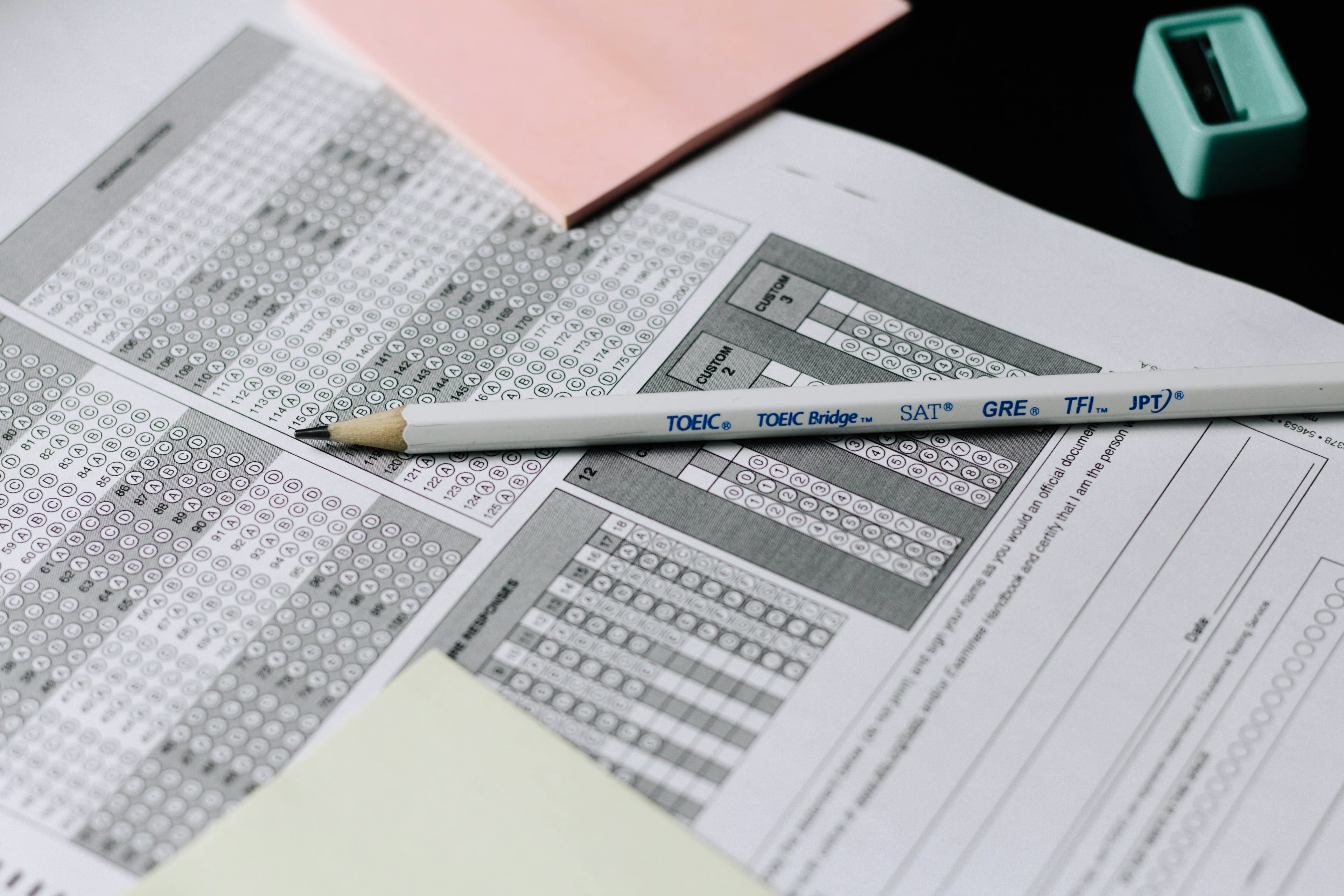
National Merit Scholarship: How to Get in 2025
The National Merit Scholarship is a scholarship program that recognizes outstanding academic achievement combined with exceptional performance on the PSAT, or Pre-SAT.

This blog was most recently updated on March 17, 2025.
What is the National Merit Scholarship?
The National Merit Scholarship is a scholarship program that recognizes outstanding academic achievement combined with exceptional performance on the PSAT, or Pre-SAT. It is awarded to U.S. high school students. This can include students in high school in the U.S. (both homeschool and traditional students), the District of Columbia, U.S. territories, or U.S. citizens attending school abroad. It is not open to non-U.S. citizens.
How much is the National Merit Scholarship?
How much a student receives as a National Merit Scholar depends on the type of award they receive. The program awards scholarships in four ways:
- By the National Merit Scholarship Corporation. To be eligible for this scholarship, students must achieve Finalist standing. Award winners are provided a one-time scholarship of $2,500.
- Through National Merit Special Scholarships. These awards can be one time or extendable scholarships. They are awarded to students who did not become finalists but were awarded Commended Student recognition, and who also meet any other criteria set by the awarding organization. Typically students are awarded a one time scholarship of $2,500 - $5,000, or a renewable scholarship ranging from $1,000 - $10,000 per year.
- Through corporate-sponsored Merit Scholarships. Roughly 160 corporations and businesses partner with the National Merit Scholarship to provide additional scholarships to Finalists who meet specific selection criteria set by the organization. Several awards may only go to students whose parents work for the organization and who have achieved either Commended Student or Finalist standing. The award type and amount varies by corporate sponsor. Most are one-time awards, but several sponsors provide renewable scholarships.
- Through college-sponsored Merit Scholarships. Awarded to finalists who plan to attend a participating college or university, students who earn a college-sponsored Merit Scholarship may renew it for up to four years. These awards are not transferable and the student must attend all four years at the sponsoring institutions to be eligible for renewal. Awards range from $500 to $2000 per year.
How many students get the National Merit Scholarship?
The number of students who will receive a National Merit Scholarship changes each year based on the number of students eligible to take the exam. Typically between 7,500 and 8,500 students will be selected each year. For students entering an undergraduate institution in the fall of 2025, the National Merit Scholarship Corporation will be recognizing 7,880 students.

How hard is it to get the National Merit Scholarship?
Earning a National Merit Scholarship is a rigorous academic process that is not guaranteed by any one action. Less than 1% of the approximately 1.5 million high school students who take the PSAT will become a National Merit Scholar.
How to qualify for the National Merit Scholarship
To earn a National Merit Scholarship you must be selected as a National Merit Scholar by first becoming a finalist in the selection process. To arrive at the coveted end goal of earning a National Merit Scholarship, students must take the following steps.
1. Take the PSAT/NMSQT (Preliminary Student Aptitude Test/National Merit Scholarship Qualifying Test) prior to their final year of high school (12th grade). Most take it October of their Junior year (11th grade), but students intending to graduate early should adjust for their intended enrollment date at a college or university. A side note: An additional PSAT is available, called the PSAT 10, but taking it does not qualify you for the National Merit Scholarship, so be sure to register for the correct test.
2. Be enrolled in high school full-time.
3. Be in good academic standing.
4. Plan to go to college the Fall after you graduate.
5. Earn a PSAT/NMSQT score in the top 1% of your state. This means the qualifying score will vary, but typically you will need a 215 or higher in most states. Students in highly competitive states will likely need an even higher score to be in the top 1%.

How to apply for the National Merit Scholarship
Only students who have been notified that they have qualified as a Semifinalist will be eligible to apply for a National Merit Scholarship. Students who qualify as Seminifinalists will be sent additional application materials to complete in order to qualify as a Finalist. Typically the additional application will involve the following:
- Submitting high school transcripts
- Submitting a letter of recommendation
- Writing a personal essay
- Submitting SAT or ACT scores that are comparable to your PSAT scores (i.e. they want to see that your PSAT scores weren't a fluke).
If you hope to apply for the National Merit Scholarship, we encourage you to register and take either the SAT or ACT in the 6 months following the PSAT so that you have your scores ready should you become a semifinalist.
Additionally, students who achieve ‘Commended Student’ status but do not become Semifinalists may be eligible for one of the Special Scholarships. As in the case of Semifinalists, the National Merit Scholarship Corporation will notify students who are eligible to apply for one of these awards and provide them with the appropriate application materials. The application process is typically similar.
When is the National Merit Scholarship deadline?
Deadlines for the National Merit Scholarship and the Special Scholarships will vary, but students who hope to qualify must register to take the PSAT/NMSQT in the Fall of their second to last school year (typically a student’s Junior year).
5 Tips on How to Get the National Merit Scholarship
Earning a National Merit Scholarship is a competitive process and can seem daunting. Taking actionable steps to assure your success can boost your chances. Here are five tips that can help:
1. Prepare Early and Often: Begin studying for the PSAT/NMSQT several months to a year in advance. Since this test is typically taken in the Fall of a student’s junior year, we recommend beginning PSAT prep during a student’s sophomore year. Use official practice tests and study materials to familiarize yourself with the test format and question types.
2. Focus on Your Weakest Areas: Once you have taken a few practice tests, fine-tune your study habits to focus on the areas in which you consistently score lower than you would like. You don’t need to give up studying other areas, but your time will be best spent if you can increase your knowledge and confidence in areas of weakness.
3. Maintain Academic Excellence: Since the National Merit Scholarship does not only look at test scores, it is important to earn a strong GPA throughout high school. Take challenging courses, such as honors or Advanced Placement (AP) classes, to demonstrate academic dedication and capability.
4. Develop Strong Test-Taking Strategies: This is not just for anxious test takers! Even students who feel confident can gain valuable insight by learning and practicing test-taking techniques. These will help you work efficiently through the PSAT/NMSQT. Such strategies may include time management, understanding how to guess intelligently, and knowing when to move on from difficult questions.
5. Seek Guidance and Feedback: If you are certain you want to compete for the National Merit Scholarship, speaking with your school's guidance counselors can provide you with valuable advice and resources for preparation. Additionally, finding a mentor or tutor with specialized knowledge of the PSAT can help you prepare more efficiently and feel more confident.
Ultimately, earning a National Merit Scholarship will come down to a lot of hard work and a little bit of chance. Putting in the effort to excel academically and prepare for the test are important first steps.




